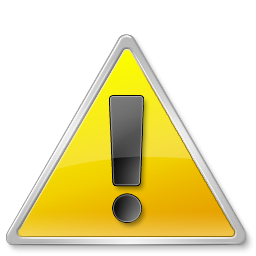Troubleshooting Specific Stop Errors
This out of the Vista Inside out book. I thought it may be helpful for some people that have this happen on their system to know.
General Advice for Dealing with Stop Errors If you experience a Stop error, don’t panic. Instead, run through the following troubleshooting checklist to isolate the problem and find a solution: l Look for a driver name in the error details If the error message identifies a specific file name and you can trace that file to a driver for a specific hardware device, you may be able to solve the problem by disabling, removing, or rolling back that driver to an earlier version. The most likely offenders are network interface cards, video adapters, and disk controllers.
STOP 0x0000000A or IRQL_NOT_LESS_OR_EQUAL
A kernel-mode process or driver attempted to access a memory location without authorization. This Stop error is typically caused by faulty or incompatible hardware or software. The name of the offending device driver often appears in the Stop error and can provide an important clue to solving the problem. If the error message points to a specific device or category of devices, try removing or replacing devices in that category. If this Stop error appears during Setup, suspect an incompatible driver, system service, virus scanner, or backup program. For more information, see Knowledge Base article 314063, Windows Vista Inside Out - Redirect.
STOP 0x0000001E or KMODE_EXCEPTION_NOT_HANDLEDThe Windows kernel detected an illegal or unknown processor instruction, often the result of invalid memory and access violations caused by faulty drivers or hardware devices. The error message often identifi es the offending driver or device. If the error occurred immediately after installing a driver or service, try disabling or removing the new addition.
STOP 0x00000024 or NTFS_FILE_SYSTEMA problem occurred within the NTFS fi le-system driver. A similar Stop error, 0x23, exists for FAT32 drives. The most likely cause is a hardware failure in a disk or disk controller. Check all physical connections to all hard disks in the system and run the Check Disk utility (chkdsk.exe) using the instructions outlined in “Checking Disks for Errors,” For more information, see Knowledge Base article 228888, ttp://www.vistaio.com/2318.
STOP 0x0000002E or DATA_BUS_ERRORFailed or defective physical memory (including memory used in video adapters) is the most common cause of this Stop error. The error may also be the result of a corrupted hard disk or a damaged motherboard.
STOP 0x0000003F or NO_MORE_SYSTEM_PTESYour system ran out of page table entries (PTEs). The cause of this relatively uncommon error may be an out-of-control backup program or a buggy device driver. For more information, see Knowledge Base article 256004, Windows Vista Inside Out - Redirect.
STOP 0x00000050 or PAGE_FAULT_IN_NONPAGED_AREAA hardware driver or system service requested data that was not in memory. The cause may be defective physical memory or incompatible software, especially remote control and antivirus programs. If the error occurs immediately after installing a device driver or application, try to use Safe Mode to remove the driver or uninstall the program. For more information, see Knowledge Base article 894278, Windows Vista Inside Out - Redirect or Knowledge Base article 183169, Windows Vista Inside Out - Redirect.
STOP 0x00000077 or KERNEL_STACK_INPAGE_ERRORThe system attempted to read kernel data from virtual memory (the page file) and failed to find the data at the specified memory address. This Stop error can be caused by a variety of problems, including defective memory, a malfunctioning hard disk, an improperly configured disk controller or cable, corrupted data, or a virus infection. For more information, see Knowledge Base article 228753, Windows Vista Inside Out - Redirect.
STOP 0x0000007F or UNEXPECTED_KERNEL_MODE_TRAPHardware failure is the most common cause of this error. You are most likely to see this Stop error if you have defective memory chips, mismatched memory modules, a malfunctioning CPU, or a failure in your fan or power supply that causes overheating. The error is especially likely to occur on systems where the CPU has been tweaked to run past its rated speed, a process known as “overclocking.” The first parameter immediately after this Stop error number identifies the specific cause of the error. For more information, see Knowledge Base article 137539, Windows Vista Inside Out - Redirect.
STOP 0x000000C2 or BAD_POOL_CALLERA kernel-mode process or driver attempted to perform an illegal memory allocation. The problem can often be traced to a bug in a driver or software. It is also occasionally caused by a failure in a hardware device. For more information, see Knowledge Base article 265879, Windows Vista Inside Out - Redirect.
Attachments
Last edited by a moderator:

